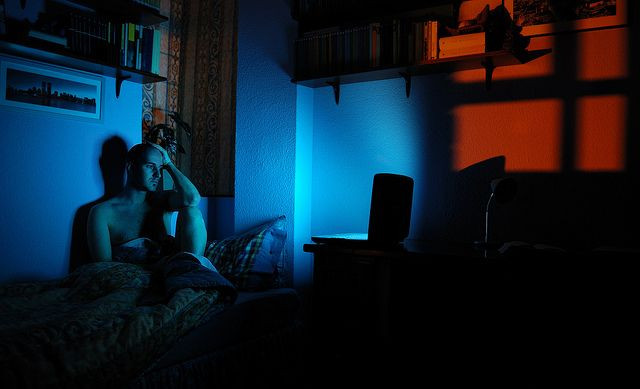Is Procrastination Causing Your Sleep Deprivation? The Dangers Of Pushing Back Your Bedtime

Bleary-eyed college students have internalized the procrastinator’s motto for decades: If you wait until the last minute, it’ll only take a minute. New research is suggesting that procrastination — despite being the stuff all-nighters are made of — actually takes place on the nights we plan on sleeping, too.
Sleep procrastination, as the experts are calling it, may go a long way toward explaining why more than a third of the U.S. gets insufficient sleep — or less than seven hours, on average, according to the Centers for Disease Control and Prevention. Americans get so little sleep, in fact, that the CDC even goes as far as calling it a “public health epidemic.” All that sleep deprivation results in almost 38 percent of people unintentionally falling asleep the following day.
So what does sleep procrastination look like? Researchers from Utrecht University conducted a study recently that hoped to find out. They issued an online survey to 177 respondents asking about their ability to self-regulate their sleep (basically code for, “How hard is it to stop binging on Game of Thrones?”) and the quality of their sleep each night. They found a negative relationship between the two variables, meaning that people who did a poor job of self-regulating their sleep behavior were more likely to put off going to bed, ultimately hurting their quality of sleep.
Self-regulation is perhaps the most important part of sleep procrastination, the team contends. It’s not so much a matter of people resisting sleep, “but rather of not wanting to quit other activities," lead author and assistant professor of psychology, Floor Kroese, told Real Clear Science. In truth, this should make some intuitive sense. Whether we’re engrossed in some trashy novel or feeling anxious about a big presentation the next morning, avoiding sleep is our only way of putting distance between us and the thing that’s undesirable, which may be specific or could simply be anything else.
But the story gets worse, because it’s not just that you procrastinate that makes for a poor sleep, but what you do while you procrastinate. "Bedtime procrastination may be a relatively modern phenomenon," Kroese explained, which means now more than ever we bombard our eyes with blue artificial light that tricks our brains into thinking it’s daytime. So while you’re mindlessly scrolling through Twitter or catching up on Breaking Bad, the light hitting your eye produces a cascade of neural effects, which ultimately disrupts your sleep.
The hormone responsible for making you sleepy and keeping you asleep, melatonin, is critical for health sleep patterns. It’s the hormone that regulates your circadian clock — the body’s natural metronome that aligns itself with sunrise and sunset. But while your body grows tired, your brain stays awake and melatonin never gets released. And the swath of electronic devices you use to keep yourself awake isn’t doing you any favors.
Of course, when you’re in the middle of a season finale, getting some shuteye probably seems about the most boring thing you could do. The best advice may simply be to imagine how awful you’ll feel having to wake up the next morning — another link in the chain of groggy, unrested days. So a word to the wise: If you absolutely have to stay up, read a book instead. Your health will thank you.
Source: Kroese F, Ridder D, Evers C, Adriaanse M. Bedtime Procrastination: Introducing a New Area of Procrastination. Frontiers in Psychology. 2014.
Published by Medicaldaily.com



























